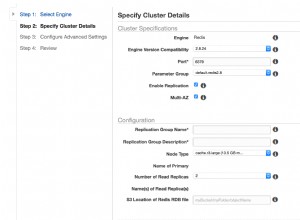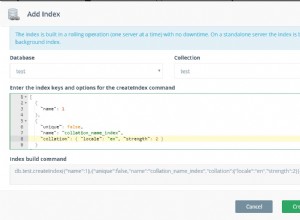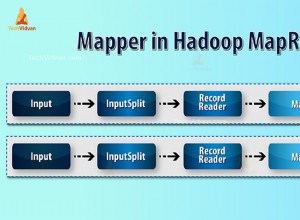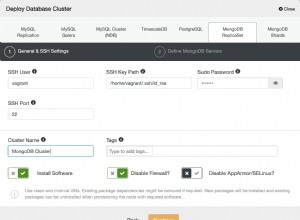El comando de shell MongoDB (anterior a v3.4) para su caso de uso es:
db.collection.aggregate([
{
"$redact": {
"$cond": [
{ "$gt": [ "$pub-date", "$rel-date" ] },
"$$KEEP",
"$$PRUNE"
]
}
}
])
Traduciendo este comando a Java obtendrás:
MongoClient mongoClient = ...;
MongoCollection<Document> collection = mongoClient.getDatabase("...").getCollection("...");
List<Document> documents = collection.aggregate(Arrays.asList(
new Document("$redact", new Document("$cond",
Arrays.asList(new Document("$gt", Arrays.asList("$pub-date", "$rel-date")), "$$KEEP", "$$PRUNE"))
))).into(new ArrayList<>());
for (Document document : documents) {
System.out.println(document.toJson());
}
Dada una colección con estos documentos...
{
"_id" : ObjectId("5acb40d27d63b61cb002bafe"),
"title" : "WingsOfFire",
"pub-date" : ISODate("2013-10-02T00:00:00.000Z"),
"rel-date" : ISODate("2013-11-02T00:00:00.000Z")
}
{
"_id" : ObjectId("5acb662756539a6734e64e4a"),
"title" : "WingsOfSmoke",
"pub-date" : ISODate("2013-11-02T00:00:00.000Z"),
"rel-date" : ISODate("2013-10-02T00:00:00.000Z")
}
.. el código Java anterior imprimirá ...
{ "_id" : { "$oid" : "5acb662756539a6734e64e4a" }, "title" : "WingsOfSmoke", "pub-date" : { "$date" : 1383350400000 }, "rel-date" : { "$date" : 1380672000000 } }
... porque la pub-date de este documento (2013-11-02T00:00:00.000Z) es posterior a su rel-date (2013-10-02T00:00:00.000Z).
Nota:el $where El operador es funcionalmente equivalente, pero el uso de ese operador viene con algunas limitaciones :




